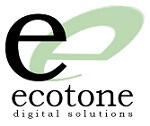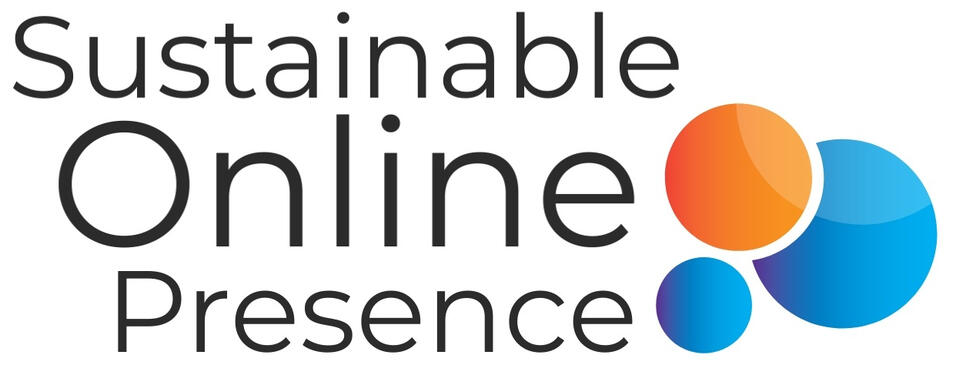you are busy ~ digital is hard ~ I can help
Making That Decision
Transitioning from a steady full-time job to your own venture?You've worked hard and achieved much, but the daily grind is wearing thin. You're ready for something new.Now you're ready to establish your online presence and connect with your fresh audience.
What Does It Take To Make That Decision?
Not Done Yet!


Seasoned Professional
As a seasoned professional, you have accumulated extensive experience and deep knowledge over many years.You have honed your skills through practical application while navigating various challenges, and continuously learning and adapting.This expertise makes you invaluable, as they bring a wealth of insights, refined judgment, and a proven track record of success to any endeavor they undertake.
As A Seasoned Professional
I Am A . . .
Second Bite Encore Career
Retirement isn’t the end—it’s a new beginning. For many seasoned professionals, life after retirement is an opportunity to reinvent, rediscover, and re-engage in meaningful ways.The world needs your experience, skills, and wisdom. Instead of winding down, this is your time to lean into what excites you—on your terms.
This journey isn’t just about staying busy; it’s about staying engaged and making an impact.
Join the Second Bite Encore Career Hub on Linkedn


Services Just For You!
We pride ourselves on tailoring our services specifically for you. We understand the challenges you face and are committed to providing the tools and strategies necessary to amplify your message and achieve your goals.We are committed to offering valuable tools & resources, expert advice, and essential networking opportunities to help you navigate and succeed in your encore career journey.

Work / Life Balance
The true meaning of work/life balance.

Other Reasons to Make The Change
An encore career change is an exciting opportunity to try something new and invigorate your professional life with fresh challenges and experiences. It allows you to leverage your wealth of knowledge and skills in meaningful ways that contribute to the greater good, whether it's through environmental initiatives, social causes, or community development. By embarking on this journey, you can work for the world, using your expertise to drive positive change and leave a lasting impact.

Try Something New
Break the routine, learn new skills, and tackle fresh challenges.

Work for the World
Use your expertise to make a positive impact on global & community issues.

Making Way
Create opportunities for younger professionals and mentor them.
Partners We Depend On
By collaborating with designers, writers, coaches, and other specialists, we can provide a robust support network that offers comprehensive resources and perspectives.Together, we can empower professionals, like yourself, to navigate your career transitions with confidence and clarity, ensuring you have the tools needed to succeed in their new ventures.
Making That Decision
"Making the decision" to retire or embark on an encore career is a pivotal moment, often filled with questions that cut to the core of who you are and what you still want to achieve. It's a transition that requires both reflection and a forward-looking mindset, and it goes far beyond simply deciding whether to stop working. It’s about shaping the next chapter of your life with purpose. Will you retire and focus on other pursuits, or is there an encore career calling your name? Either way, the questions of what, how, and why are central to the process.1. What Will You Do?
The first question you’ll face is: What do I want to do next? This may seem straightforward, but it’s deeply personal and can be multifaceted. Your options might range from fully retiring to enjoy personal hobbies, family, and leisure time, or pivoting to a completely new career driven by passion, creativity, or purpose.Retire and explore other pursuits: Maybe you’ve been looking forward to traveling, diving deeper into a hobby, or spending more time with loved ones. If so, you’re ready to embrace a lifestyle where your time is fully your own. But even in retirement, many find they still want to engage in fulfilling activities—volunteering, teaching, or mentoring—which gives them a sense of purpose without the demands of a full-time career.Embark on an encore career: Alternatively, you may feel the urge to continue working, but this time on your own terms. An encore career allows you to explore areas that may have been a side interest during your primary career or something completely new that you’ve been passionate about but never had the chance to pursue. This could be starting a small business, consulting, writing, or working for a cause close to your heart.Whatever path you choose, the decision will shape how you spend your days and, more importantly, how you find fulfillment.2. How Will You Do It Differently?
One of the most exciting parts of this new phase is that you’re no longer bound by the same constraints you faced in your earlier career. Now, you get to approach work—or life—on your terms. So, the question is: how will you do things differently this time around?More flexibility: You’ve earned the right to design your schedule. Whether you're retiring or taking on an encore career, you have the freedom to build a life that works for you. No more rigid 9-to-5 if that doesn’t appeal to you. If you decide to work, maybe it’s part-time, freelance, or on a project-by-project basis, giving you more control over your time.More meaningful work: If your previous career was driven by necessity—providing for your family, climbing the corporate ladder, or meeting financial goals—this next phase can be driven by meaning. You can choose work that aligns with your values, where your experience can make a real difference, or that simply brings you joy.Emphasis on balance: You might approach your work differently by prioritizing balance. Instead of long hours and intense commitments, you may want to focus on creating space for the things that matter most to you—health, relationships, and personal interests. This can be liberating compared to the pressures of your earlier career.3. How Will You Do It Better Than Others?
The beauty of entering this next phase is that you are uniquely positioned to do things better than others—not just because of your experience but because of the wisdom and insight you’ve gained along the way.Leverage your experience: Unlike someone just starting out, you bring a wealth of experience to the table. This gives you an edge in understanding how to navigate challenges, manage people, and deliver results efficiently. Whether you’re mentoring, consulting, or launching your own business, your deep expertise will set you apart.Emotional intelligence: After years in your career, you’ve likely developed high emotional intelligence. You know how to work with different personalities, manage conflicts, and create positive outcomes through collaboration. This will allow you to build better relationships, whether in business or personal ventures and offer guidance to others in a way that younger professionals might not yet understand.Strategic thinking: With age comes perspective. In your encore career, you’ll likely approach challenges with a long-term view, making decisions that are thoughtful and strategic rather than reactive. This calm and measured approach often leads to better outcomes, whether you’re starting a business or taking on a leadership role in a new field.4. Will This Succeed?
When thinking about the success of your encore career or retirement ventures, the question is not just about financial success or accolades—although those can be important—but rather about what success looks like to you.Define your own metrics: For some, success might mean achieving financial stability or growing a new business. For others, it could be about making a meaningful contribution to society, helping others, or finally pursuing a lifelong dream. Success in an encore career isn’t necessarily about competing with others or reaching traditional milestones—it’s about meeting your own personal goals.Redefine risk and reward: Unlike earlier in life, you may be in a position where financial success isn’t your only measure of achievement. Maybe the rewards you seek are more personal or intangible—feeling fulfilled, making an impact, or simply enjoying what you do. As such, your definition of success might look very different now.Does it matter?: Ultimately, it’s worth asking: does it matter if this succeeds in the traditional sense? If what you're doing brings you joy, fulfillment, or peace of mind, then maybe that is success. The pressure to perform and succeed is something you may have already proven in your earlier career. Now, it’s more about doing what feels right for you.5. What is Success?
Success in this stage of life might look vastly different from what it did earlier in your career. Now, success might mean:Living with purpose: Feeling that you’re contributing to something meaningful—whether through work, volunteering, or personal projects—can be deeply satisfying. It’s about leaving a legacy or knowing that you’ve made an impact, big or small.Achieving personal fulfillment: For some, success is simply the ability to enjoy life on your own terms—having the freedom to travel, spend time with family, or pursue hobbies that give you joy.Growth and learning: Success can also be about continued growth. You’re never too old to learn new skills, explore new industries, or challenge yourself in new ways. If this phase brings you a sense of growth or discovery, that in itself is a major success.Maintaining balance: If earlier success was about pushing boundaries and achieving more, now success might be about maintaining balance—between work, leisure, relationships, and health. Finding that equilibrium can lead to a more fulfilling and sustainable lifestyle.6. What Will Satisfy You?
Ultimately, the question of satisfaction is deeply personal. What will make this next phase of your life feel complete?Joy and passion: Will you feel satisfied if you wake up excited about what you’re doing? Whether it’s working in a field that energizes you, traveling the world, or engaging in creative pursuits, doing something that sparks joy may be all the satisfaction you need.Contribution and impact: If making a difference is important to you, satisfaction might come from knowing that you’ve helped others, left a positive mark on your community, or contributed to causes you believe in.Freedom and control: For many, satisfaction in retirement or an encore career comes from having the freedom to design your own life. The ability to choose how you spend your time, who you work with, and what projects you take on is a powerful form of satisfaction.Peace of mind: Perhaps satisfaction comes from simply knowing you’ve done enough. After years of hard work, maybe this next chapter is about enjoying peace—being present with loved ones, taking care of yourself, and appreciating what you’ve accomplished.Shaping Your Next Chapter
In the end, whether you choose to retire fully or embark on an encore career, the decision is about what will bring you fulfillment in this next phase of life. You have the freedom, experience, and wisdom to shape this chapter however you see fit. Will you succeed? Most likely—because you define what success looks like now. And in this new phase, success is about finding satisfaction, living purposefully, and doing what brings you joy.So, what will you do next? How will you approach this phase in a way that feels authentic and fulfilling for you?
Back to Main Menu
Not Done Yet!
As you consider taking the second bite at your encore career, there’s another powerful element to add: you’ve earned the right to choose your next venture. You are not only "not done yet," but you're also a seasoned professional with a lifetime of experience, expertise, and wisdom. This next step is not about starting over; it's about building on everything you’ve already achieved and shaping the career path that you want.1. Recognizing that You’re Not Done Yet
You’ve spent years building a career, refining your skills, and learning from your successes and setbacks. Now, as you look toward the future, it’s important to realize that you don’t need to stop. In fact, you're in a unique position to take what you've learned and channel it into something new that excites and energizes you. The idea of “retirement” in the traditional sense may not appeal to you, especially if you feel like you still have so much more to give.Being "not done yet" is about acknowledging that there's a wealth of opportunities still ahead of you. You can create a second act that feels just as meaningful—if not more so—than your previous career.2. You’re a Seasoned Professional—You’ve Earned This
One of the most empowering aspects of pursuing an encore career is realizing that you’ve earned the right to choose. You’ve spent decades accumulating skills, knowledge, and insights. You’re no longer bound by the same limitations or expectations that may have guided your earlier career decisions, like chasing promotions, financial pressures, or family obligations.Now, you get to pivot toward what genuinely resonates with you. This time, the power is in your hands. You can ask yourself:What do I want my days to look like?
What gives me a sense of fulfillment and purpose?
How can I use my experience to make a real impact?
You’ve spent years paying your dues, and now you get to design the career you want, on your terms.3. The New Venture: Combining Passion and Expertise
Your next career venture can be a thrilling mix of passion and expertise. Unlike earlier in life, where you may have been learning the ropes or establishing your reputation, you now step into this new phase with the confidence and experience of a seasoned professional. This changes the game.Do you want to mentor or consult? Your years of experience make you a valuable resource in almost any field. Consulting or mentoring allows you to pass on what you’ve learned while maintaining the flexibility to structure your time as you see fit.
Is there an industry or cause that’s been calling your name? Whether it’s healthcare, education, the arts, or entrepreneurship, this is your opportunity to explore fields that align with your values and interests.
Start something new or refine something old? You might take on a completely new venture—like launching a business—or take what you already know and push it further into new territories.
With your expertise, you can jump into roles that leverage your experience while exploring areas you’ve always been passionate about.4. Shaping Your Encore Career Around Your Strengths
As a seasoned professional, you’re armed with a deep understanding of your own strengths and weaknesses. This insight is invaluable when designing your encore career. You have the advantage of knowing what you excel at and where you can have the most impact.Take a moment to reflect:What parts of your previous career brought you the most joy? Did you love mentoring others? Problem-solving? Building something from scratch? Your encore career can focus on amplifying those strengths.
Where can your skills be applied in new ways? Your professional expertise can translate into multiple areas. For example, a corporate executive may find fulfillment in working with nonprofits, while an educator might find joy in developing a curriculum for under-resourced schools.
Your encore career is your chance to emphasize the parts of your professional life that you found most rewarding.5. You Have the Freedom to Choose What Matters to You
With the foundation of experience beneath you, you can now pursue a career that aligns with your values and personal goals. You may want to focus on something that contributes to society, creates a legacy, or simply brings you joy. The beauty of being a seasoned professional is that you can be selective about what you choose to invest your time and energy into.Do you want to:Make a social impact? Perhaps you want to focus on philanthropic efforts, working with non-profits, or using your skills to help communities in need.
Work on your own terms? Many encore careers offer the freedom to work part-time, freelance, or consult, allowing you to maintain a balance between work and life that suits your preferences.
Pursue a passion project? Whether it's writing, teaching, or launching a creative business, this is your time to dedicate yourself to a project you’ve always dreamed about.6. Confidence in Transition: You’ve Done This Before
Making a career transition later in life might seem daunting, but remember: You’ve navigated big changes before. The difference now is that you’re doing it with years of knowledge and a clearer sense of purpose. You’ve earned the right to be confident in your abilities and your decision-making process.Tap into your network: As a seasoned professional, your network is a valuable asset. Reach out to former colleagues, mentors, and peers who can offer insights or even open doors in new industries.
Take incremental steps: You don’t need to dive headfirst into your encore career. Try it out with small projects, part-time commitments, or side gigs to ensure it’s the right fit.
Leverage your reputation: Your past accomplishments carry weight. When you move into a new field, the credibility you’ve built over the years can help smooth the transition.Finally, Embrace the Freedom of Your Encore Career
At this stage, the decision to pursue an encore career is a recognition of your continued potential and the understanding that you’ve earned the freedom to choose. You’ve proven yourself as a seasoned professional, and now you get to design a path that brings you personal and professional fulfillment. Whether it’s launching a business, giving back through mentoring, or exploring an entirely new industry, this is your chance to take that second bite, knowing that your experience has prepared you for whatever comes next.So, what excites you about this next chapter? What will your second act look like now that you get to call the shots?
Back to Main Menu

EcoDigital is ALL IN when it comes to empowering seasoned professionals as they start on new career journey. To help you along your way we offer comprehensive digital resources & tools, expert partnership opportunities, and a supportive community to help you succeed in your encore career. Join us to explore new opportunities, make a positive impact, and mentor the next generation.
As A Seasoned Professional
As a seasoned professional, you’ve spent years honing your craft, navigating challenges, and accumulating a wealth of knowledge. You’ve reached this point through dedication, resilience, and a series of decisions that have shaped not only your career but also your understanding of what it means to succeed and find purpose in your work. This journey has given you a rich reservoir of experience, which is now one of your most valuable assets—not just for yourself, but for others who can learn from your path.1. How You Got Here: The Path of a Seasoned Professional
Your career wasn’t built overnight. It’s the result of years of learning, adapting, and refining your approach to work and life. Here’s how your experience has shaped you into a seasoned professional:Hard-won experience: You’ve faced the ups and downs of a career, and each success and setback has contributed to your growth. You’ve learned to manage change, lead others, and navigate complex situations. This knowledge isn’t something that can be taught in a classroom—it’s earned over time.Adaptability and growth: Throughout your career, you’ve had to adapt to new challenges, technologies, and workplace dynamics. This adaptability is part of what has made you resilient, and it’s a skill that younger professionals can greatly benefit from learning.Developing leadership and mentorship skills: Over the years, you’ve likely mentored others, either formally or informally, helping colleagues, employees, or peers develop their skills. You’ve learned how to lead by example and provide guidance that is both supportive and constructive.Building a network and reputation: One of the key achievements of your career is the professional network and reputation you’ve built. Your connections and credibility offer a platform to influence others and share your knowledge more broadly.This experience has culminated in a deep understanding of your industry, your own strengths, and the value of perseverance. You are now in a position where you can share that wisdom, helping others benefit from the lessons you’ve learned.2. Sharing Your Experience with Others
Now that you’ve reached this stage, one of the most fulfilling ways to continue your journey is by sharing your knowledge with others. Your insight can provide guidance, inspiration, and practical help to those who are still finding their way.Here are some ways to share your experience:Mentorship
As a seasoned professional, mentoring can be one of the most powerful ways to share your experience. Whether in a formal capacity through a company or organization or informally with people in your network, mentorship allows you to provide direct support to individuals looking to grow in their careers.Offer guidance and support: Younger professionals often need someone to provide perspective and advice as they navigate career decisions, challenges, and transitions. By sharing your own experiences—the mistakes and the victories—you can help them make more informed decisions.Help them avoid pitfalls: You’ve learned through experience where common career pitfalls lie. By sharing these insights, you can help others avoid the same mistakes or recover more quickly from challenges.Be a sounding board: Sometimes, mentees just need someone to listen and offer advice as they figure things out. Your ability to provide a balanced, experienced perspective is invaluable in these moments.Consulting and Advising
If you’re looking for a more structured way to share your expertise, consulting is an excellent avenue. You can leverage your professional knowledge to help businesses, teams, or individuals solve problems, streamline processes, or develop strategies. Consulting allows you to remain active in your field while providing others with the benefit of your wisdom.Offer industry expertise: With your years of experience, you can provide insights into industry trends, effective strategies, and best practices. Companies often seek out seasoned professionals for their ability to provide high-level advice on complex issues.Leadership coaching: You can also focus on leadership development, helping current and aspiring leaders to enhance their skills in managing teams, fostering innovation, and building a strong organizational culture.Speaking and Writing
Another way to share your knowledge is through public speaking or writing. Your expertise could benefit a wider audience, and speaking or writing allows you to reach more people.Public speaking: Whether at conferences, workshops, or industry events, sharing your journey, insights, and advice can inspire others. Topics could range from industry-specific knowledge to leadership, career resilience, or innovation.Writing blogs, articles, or a book: Many seasoned professionals choose to write about their experiences, either in industry publications, on personal blogs, or by authoring books. Sharing your lessons in written form allows others to learn from your journey at their own pace.Teaching and Training
If you enjoy teaching, consider transitioning into a role where you can train others. You can teach in a university setting, offer corporate training programs, or even create your own workshops or courses.Higher education: Your industry expertise would be invaluable in a classroom setting, where students can learn from your real-world experience. Teaching not only allows you to impart knowledge but also to influence the next generation of professionals.Workshops and corporate training: Many companies seek out experienced professionals to train their teams. You can offer specialized workshops or ongoing training programs that focus on the skills and knowledge most relevant to today’s business world.3. How You’ll Do It Differently
Sharing your experience in this next phase will be different from how you’ve operated in the past. Now, you have the freedom to approach it in a way that reflects your personal values and goals, rather than the demands of others.On your terms: You get to choose what projects you take on, how much time you invest, and how you want to share your knowledge. This is your opportunity to do things in a way that aligns with your priorities, whether that’s working with a select group of mentees, advising companies you believe in, or focusing on topics you’re passionate about.With more impact: Because you’ve been there before, you know how to get to the heart of issues quickly. You don’t need to prove yourself like you might have earlier in your career. Instead, you can focus on creating meaningful impact—whether that’s by guiding someone through a pivotal career moment or helping a company navigate complex decisions.Building relationships, not just transactions: You’ve learned the importance of relationships over time, and as you mentor or consult, you’ll likely find greater satisfaction in building long-term, meaningful connections. You understand that it’s about more than just the job—it’s about trust, collaboration, and mutual growth.4. What Will Success Look Like in This Phase?
Success as a seasoned professional sharing your experience may not look the same as it did when you were climbing the career ladder. Now, success might be defined by:The legacy you leave: Helping others achieve their goals, making a lasting impact on a company or community, or contributing to the growth of future leaders.Personal fulfillment: You’ll likely find satisfaction in seeing others benefit from your guidance. Knowing that your hard-earned experience is being passed on to the next generation can be incredibly fulfilling.Continuous learning and growth: Even though you’re sharing your experience, there’s always room for you to continue learning. Engaging with new ideas, industries, or perspectives can keep your work dynamic and satisfying.Sharing Your Experience
As a seasoned professional, you’ve reached a point in your career where your knowledge is a resource others can benefit from in profound ways. Whether you choose to mentor, consult, speak, write, or teach, your experience is a valuable tool for shaping the careers and lives of those who are following in your footsteps. Now, it’s about using your wisdom to help others—and in doing so, finding a new level of success and fulfillment for yourself.How do you envision sharing your experience with others? Which avenue excites you the most?
Back to Main Menu
The Importance of Experienced, Seasoned Professionals in Today's Workforce
In an age where rapid technological advancements and dynamic market trends dominate the business landscape, the value of experienced, seasoned professionals often goes underappreciated. Yet, these professionals bring a wealth of knowledge, stability, and perspective that is indispensable to organizations. Their profound understanding of industry intricacies, coupled with their ability to navigate complex challenges, makes them invaluable assets in fostering innovation, mentoring the next generation, and steering companies toward sustainable success.Expertise and Knowledge
Seasoned professionals are repositories of industry-specific knowledge accumulated over decades. Their deep understanding of the historical context, trends, and developments in their fields allows them to provide insights that are not available from theoretical learning or short-term experience. This expertise is crucial in making informed strategic decisions, avoiding past mistakes, and leveraging opportunities that others might overlook.For instance, in the financial sector, a seasoned professional who has witnessed multiple economic cycles can better predict market movements and advise on risk management strategies. In technology, someone who has seen the evolution of computing from mainframes to cloud can offer a perspective that balances innovation with practical limitations.Problem-Solving and Decision-Making
Experience breeds adept problem-solving skills. Seasoned professionals have encountered and resolved a myriad of challenges throughout their careers. This experience translates into a higher capacity for critical thinking and strategic decision-making. They are often able to foresee potential issues and implement preventative measures, thereby saving organizations time and resources.Moreover, their decision-making process is often more refined and judicious. Having faced the repercussions of various decisions in the past, they can assess risks more accurately and choose the best course of action with confidence. This level of decision-making is particularly vital during crises, where quick and effective solutions are imperative.Mentorship and Knowledge Transfer
One of the most significant contributions of seasoned professionals is their role in mentoring and knowledge transfer. By guiding less experienced colleagues, they ensure the continuity of organizational knowledge and culture. This mentorship is not just about transferring technical skills but also about imparting wisdom, work ethics, and professional values.Mentorship by seasoned professionals helps in grooming future leaders. Young professionals benefit from the real-world experiences shared by their mentors, learning not just the "how" but the "why" behind various practices. This mentorship fosters a culture of continuous learning and development within the organization, which is essential for long-term success.Stability and Reliability
In a rapidly changing business environment, stability is a prized asset. Seasoned professionals provide this stability through their consistent performance and reliability. They are often the anchors within their teams, providing reassurance and support during turbulent times. Their presence can significantly boost team morale and cohesion.Reliability extends to their work ethic and commitment. Seasoned professionals have a proven track record of dedication and perseverance, traits that are crucial for maintaining the momentum and achieving organizational goals. Their steadfast nature can also inspire similar qualities in younger team members.Innovation and Adaptability
Contrary to the stereotype that seasoned professionals are resistant to change, many are, in fact, champions of innovation. Their extensive experience provides them with the ability to distinguish between fleeting trends and transformative technologies. They can bridge the gap between old and new, blending traditional practices with modern innovations to create unique solutions.Seasoned professionals are adept at adapting to new circumstances. Having navigated numerous changes in their careers, they possess the resilience and flexibility needed to thrive in evolving environments. Their adaptability is a testament to their continuous learning mindset, which is critical in today’s fast-paced world.Building and Maintaining Relationships
Relationships are the cornerstone of any successful business. Seasoned professionals bring with them a vast network of industry contacts and a reputation built over years of credible work. Their ability to cultivate and maintain professional relationships is instrumental in forging partnerships, negotiating deals, and enhancing the company’s standing in the industry.Furthermore, their seasoned perspective allows them to manage relationships with a level of diplomacy and tact that comes from years of experience. This skill is particularly important in managing stakeholder expectations and resolving conflicts, thereby contributing to a harmonious and productive work environment.Cultural and Institutional Knowledge
Every organization has its unique culture and institutional memory, both of which are preserved and perpetuated by seasoned professionals. They understand the nuances of the company’s operations, its history, and its strategic vision. This understanding enables them to align new initiatives with the organization’s core values and long-term goals.Their deep-rooted knowledge of the company’s culture also aids in onboarding new employees, ensuring that they integrate smoothly into the organizational fabric. This cultural continuity is vital for maintaining a cohesive and unified workforce.In conclusion, experienced, seasoned professionals are indispensable assets in today’s workforce. Their expertise, problem-solving abilities, and decision-making acumen provide a foundation for informed strategic planning. As mentors, they play a crucial role in knowledge transfer, ensuring that organizational wisdom and culture are preserved and propagated. Their stability, reliability, and adaptability offer a steadying influence in dynamic business environments, while their capacity for innovation ensures that organizations remain competitive and forward-thinking.The relationships they build and maintain are invaluable for business development and partnership. Their deep understanding of company culture and institutional knowledge further reinforces their importance in achieving sustainable success. In recognizing and valuing the contributions of seasoned professionals, organizations not only honor their past but also fortify their future.
Back to Main Menu

